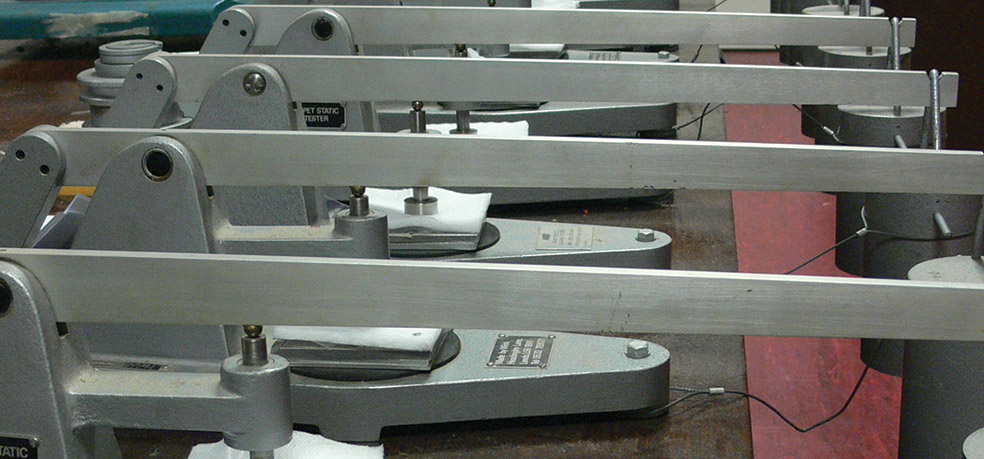
BS 5808:1991 - Specification for underlays for textile floor covering
Overview
BS 5808 specifies performance requirements for fibrous, non-fibrous and combined underlays, together with their classification for five categories of intended use/application.
The end use classification is primarily based on the work of compression value after Dynamic Loading versus the compression value after Dynamic Loading, using the method described in BS 4098 and Annex B of BS 5808.
To achieve the end use classification, the underlay also has to meet the basic performance requirements of BS 5808. The basic performance tests are:
BS 2576:1986, Method for determination of breaking strength and elongation
BS 4939:1987, Method for determination of thickness loss of textile floor coverings after prolonged heavy static loading
BS 4052:1987, Method for determination of thickness loss of textile floor coverings under dynamic loading
BS 4051:1987, Method for determination of thickness of textile floor coverings
BS 4098:1975, Method for the determination of thickness, compression and recovery characteristics of textile floor coverings
BS 5808, Annex A, Method for determination of resistance to breaking and cracking
End Use Classifications
The end use classifications are defined in BS 5808 as follows:
Class LD/U Light domestic use, not suitable for use on stairs
Class GD/U General domestic use
Class L/U Luxury use, domestic/contract, where high energy absorption is desirable
Class GC/U General contract use, suitable for normal foot and wheel traffic
Class HC/U Heavy contract use, suitable for heavy foot and wheel traffic and castor chairs
For further information, please contact Paul Doherty (Paul.Doherty@bttg.co.uk), alternatively you can contact us on +44 (0)113 2591 999.
